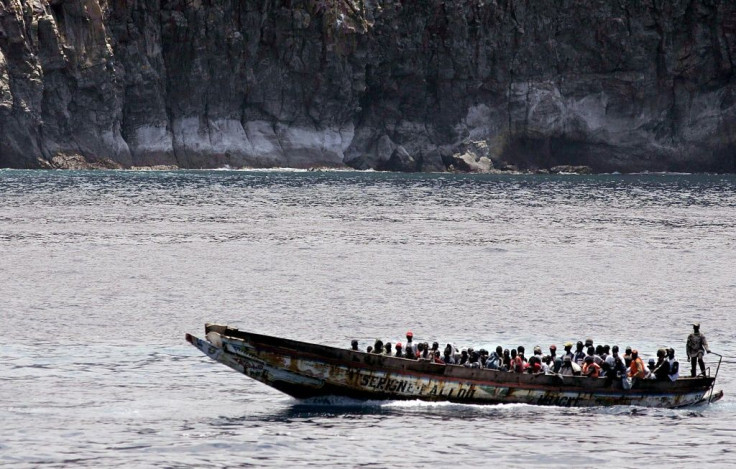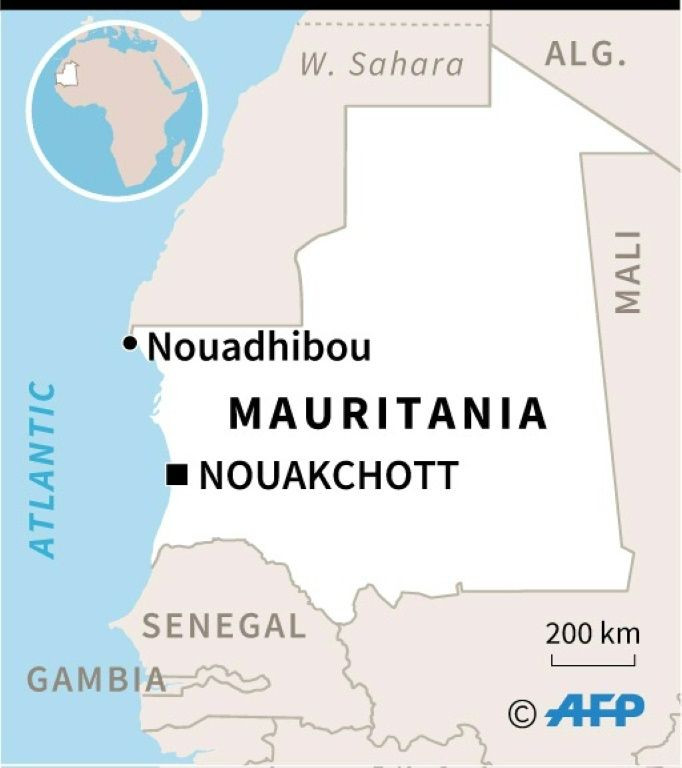Dozens Of Migrants Drown As Boat Sinks Off Mauritania

At least 62 migrants travelling on a makeshift boat have drowned off the coast of Mauritania, in the worst loss of life this year along the increasingly travelled western Atlantic migration route to Europe.
Eighty-three survivors managed to swim to shore after their boat, which was heading for Spain's Canary Islands, capsized when it hit a rock.
The migrants "were mostly clandestine immigrants trying to reach Spain, coming from Banjul in Gambia," Mauritania's interior ministry said in a statement released Wednesday night.
An original death toll of 58 given by the International Organization for Migration rose to at least 62 Thursday, as more dead bodies washed ashore during the day.
The migrant vessel sank some 25 kilometres (15 miles) north of the town of Nouadhibou, near the border with Western Sahara, a Mauritanian security official told AFP.
"The craft hit a rock in the middle of the sea, it started taking on water and the engine fell apart," the official said.
"They weren't far from the shore, but a large swell stopped them from reaching the coast by boat."
The official added that there was nothing aboard and that the migrants were hungry and cold so they jumped into the sea and started swimming.
The IOM said survivors had been trying to reach the Canary Islands and that the boat left The Gambia on November 27.
Attempts to reach the Canary Islands from West African countries have increased in recent years as authorities have clamped down on crossings to Europe from Libya.
Florence Kim, an IOM spokeswoman, said that there has been a "semi deviation of the migration route".
The sinking in Mauritania is the largest known loss of life along the so-called western route this year, and the sixth deadliest migrant capsize globally, according to IOM data.
Some 158 people are known to have died trying to reach the Canary Islands so far this year, according to the IOM, against 43 last year.

Survivors of Wednesday's sinking told the IOM there were at least 150 people aboard, including women and children.
Mauritania's interior ministry also said the vessel was carrying between 150 and 180 people, adding that most of the passengers were between the ages of 20 and 30.
It said 10 of the survivors needed emergency medical treatment.
Eighty-five survivors had been taken in line with "human solidarity" and "African hospitality," it said.
Those in need of treatment were transported to a hospital in Nouadhibou, where a doctor said they arrived "exhausted, starving, their morale at zero".
Laura Lungarotti, the head of the IOM mission in Mauritania, said the priority was now caring for the survivors.
Mauritanian authorities have contacted their Gambian counterparts, and the country's ambassador is expected to visit Nouadhibou.
Kim, the IOM, spokeswoman said that the reasons behind migration from places such as The Gambia were complex, and not only economic.
"Migration isn't just an individual decision, it's a family one. It's also a sort of initiation rite. You become a man once you've migrated," she said.
Mauritania's interior ministry said the tragedy of "the phenomenon of clandestine immigration which is decimating the African youth".
Dia Alpha Sonoko, a Senegalese man who survived the sinking, told Mauritanian TV that the smugglers had abandoned the migrants at sea.
"We were (migrating) to try to support our parents," he said.
"There is not enough work in our countries".
© Copyright AFP 2024. All rights reserved.





















